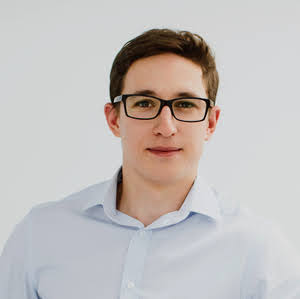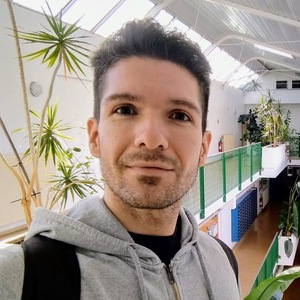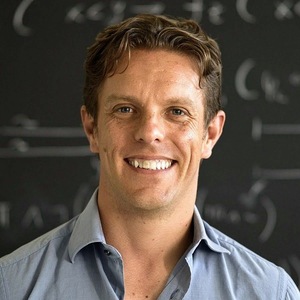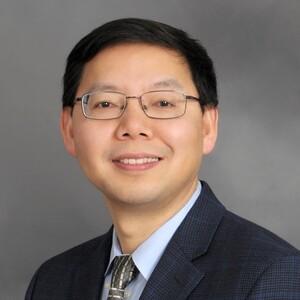
Temporal Representation
and Reasoning
Oct. 28–30, 2024
| Dates | Program | Registration | Organization | Venue |
TIME has been for more than twenty years the only yearly multidisciplinary international event dedicated to the topic of time in computer science. The purpose of the symposium is to bring together active researchers in different research areas involving temporal representation and reasoning. The symposium also welcomes research papers on the related topics of spatial and spatio-temporal representation and reasoning. In the early years, most contributions came from the Artificial Intelligence community, but the number of contributions from other areas such as Temporal Logic and Verification and partly from Temporal Databases has been increasing in the last years.
More details about TIME and the previous editions of this symposium can be found via the following link: https://time-symposium.org/.
In this symposium, in addition to theoretical and practical work in Artificial Intelligence, Databases, and Logic and Reasoning, we invite submissions focusing on the development, deployment, and evaluation of Machine Learning Systems that fall under the scope of the symposium. Such systems papers will be evaluated primarily on the quality of the empirical evaluation and reusability. Topics for TIME 2024 include (but are not limited to):
The list above is by no means exhaustive, as the aim is to foster the debate around all aspects of the suggested topics.
Finally, the authors of the top-ranked papers will be invited to submit an extended version of their contribution to a special issue in the journal of Information and Computation; more details will be provided in due time.
The submission link is available at cmt3.research.microsoft.com/TIME2024/.
TIME 2024 accepts submissions in PDF format, no longer than 12 pages excluding references and appendix. The appendix is limited to 5 pages, and the reviewers may or may not take it into account for their recommendation. Submissions must be formatted following the LIPIcs instructions and preferably redacted in LaTeX.
TIME policy is single blind, so the names of the authors need not be hidden in the submitted draft. Members of the program committee are allowed to submit papers. Submitted papers will be refereed for quality, correctness, originality, and relevance to the symposium.
Submissions to TIME 2024 must be original; parallel submissions of the same material to other conferences or journals are not allowed. At least one author of each accepted paper must register at the symposium and present the paper.
All questions about submissions should be emailed to the organizers.
Be mindful of the following dates:
Note: all deadlines are AoE (Anywhere on Earth).
Accepted papers will be presented at the symposium and included in the proceedings, which will be published by LIPIcs-Leibniz International Proceedings in Informatics. This is a series of high-quality peer-reviewed conference proceedings, and published according to the principle of OpenAccess.
The proceedings volume of TIME 2024 is now officially published as volume 318 of LIPIcs and available at: www.dagstuhl.de/dagpub/978-3-95977-349-2
In addition, we note again that the authors of the top-ranked papers will be invited to submit an extended version of their contribution to a special issue in the journal of Information and Computation; more details will be provided in due time.

|
Sophie Pinchinat
Inria-IRISA, Rennes, France Prof. Sophie Pinchinat is a Full Professor with the Department of Electrical Engineering and Computer Science of the University of Rennes 1 in France, and the Head of the LogicA research team at Inria-IRISA. Her main research interests are formal methods, artificial intelligence, multi-agent systems, security, planning, mathematical logic, automata, dynamic epistemic reasoning, and multi-player games. This keynote will be a EurAI Talk. |

|
Guido Sciavicco
University of Ferrara, Italy Prof. Guido Sciavicco is an Associate Professor with the Department of Mathematics and Computer Science of the University of Ferrara in Italy, and the Head of the Applied Computational Logic and Artificial Intelligence (ACLAI) lab. His main research interests are symbolic machine learning, mathematical logic, applications of artificial intelligence, and intelligent data analysis. |

|
Przemysław Wałęga
Queen Mary University of London & University of Oxford, UK Dr. Przemysław Wałęga is a Senior Lecturer at Queen Mary University of London and Senior Researcher at the University of Oxford in UK. His main research is focused on formal methods for reasoning about time, including such areas as knowledge representation and reasoning, logics for temporal reasoning, stream reasoning, and computational complexity analysis. |
| 9:00 | Opening: Welcome and Agenda |
| 9:30 | Strategic Reasoning under Imperfect Information with synchronous semantics | pdf |
| Sophie Pinchinat (Inria-IRISA, Rennes, France) |
| 10:30 | Coffee & Tea Break |
| 11:00 | Fitting's Style Many-Valued Interval Temporal Logic Tableau System: Theory and Implementation | pdf |
|
Guillermo Badia (University of Queensland, Australia) Carles Noguera (University of Siena, Italy) Alberto Paparella (University of Ferrara, Italy) Guido Sciavicco (University of Ferrara, Italy) Eduard Ionel Stan (Free University of Bozen-Bolzano, Italy) |
| 11:30 | Full Characterisation of Extended CTL* | pdf |
|
Massimo Benerecetti (University of Naples Federico II, Italy) Laura Bozzelli (University of Naples Federico II, Italy) Fabio Mogavero (University of Naples Federico II, Italy) Adriano Peron (University of Trieste, Italy) |
| 12:00 | Model Checking Linear Temporal Properties on Polyhedral Systems | pdf |
|
Massimo Benerecetti (University of Naples Federico II, Italy) Marco Faella (University of Naples Federico II, Italy) Fabio Mogavero (University of Naples Federico II, Italy) |
| 12:30 | Lunch Break |
| 14:00 | Rule-Based Temporal Reasoning: Exploring DatalogMTL |
| Przemysław Wałęga (Queen Mary University of London & University of Oxford, UK) |
| 15:00 | Extending the Range of Temporal Specifications of the Run-Time Event Calculus | pdf |
|
Periklis Mantenoglou (NCSR Demokritos, Greece) Alexander Artikis (University of Piraeus, Greece) |
| 15:30 | Coffee & Tea Break |
| 16:00 | Open the Chests: An environment for Activity Recognition and Sequential Decision Problems Using Temporal Logic | pdf |
|
Ivelina Stoyanova (Thales, France) Nicolas Museux (Thales, France) Sao Mai Nguyen (ENSTA Paris, France) David Filliat (ENSTA Paris, France) |
| 16:30 | Real-Time Higher-Order Recursion Schemes | pdf |
|
Eric Alsmann (University of Kassel, Germany) Florian Bruse (University of Kassel, Germany) |
| 17:00 | Reception: Wine & Cheese |
| 9:00 | A General Logical Approach to Learning from Time Series | pdf |
| Guido Sciavicco (University of Ferrara, Italy) |
| 10:00 | Learning Temporal Properties from Event Logs via Sequential Analysis | pdf |
| Francesco Chiariello (CNRS-IRIT, University of Toulouse, France) |
| 10:30 | Coffee & Tea Break |
| 11:00 | Time Series Anomaly Detection Leveraging MSE Feedback with AutoEncoder and RNN | pdf |
|
İbrahim Delibaşoğlu (Linköping University, Sweden & Sakarya University, Turkey) Fredrik Heintz (Linköping University, Sweden) |
| 11:30 | A Faster Algorithm for Finding Negative Cycles in Simple Temporal Networks with Uncertainty | pdf |
|
Luke Hunsberger (Vassar College, US) Roberto Posenato (University of Verona, Italy) |
| 12:00 | Faster Algorithm for Converting an STNU into Minimal Dispatchable Form | pdf |
|
Luke Hunsberger (Vassar College, US) Roberto Posenato (University of Verona, Italy) |
| 12:30 | Lunch Break |
| 14:00 | Introducing Interdependent Simple Temporal Networks with Uncertainty for Multi-agent Temporal Planning | pdf |
|
Ajdin Sumic (Technological University of Tarbes, France) Thierry Vidal (Technological University of Tarbes, France) Andrea Micheli (Bruno Kessler Foundation, Italy) Alessandro Cimatti (Bruno Kessler Foundation, Italy) |
| 14:30 | A Framework for Assessing Inconsistency in Disjunctive Temporal Problems |
|
Jean-François Condotta (Artois University, Lens, France) Yakoub Salhi (Artois University, Lens, France) |
| 15:00 |
Free Time to Explore the City Must-sees in Montpellier! Montpellier Tourist Map |
| 19:00 |
Dinner La Closerie Restaurant (location) |
| 9:00 | Agile Controllability of Simple Temporal Networks with Uncertainty and Oracles | pdf |
|
Johann Eder (University of Klagenfurt, Austria) Roberto Posenato (University of Verona, Italy) Carlo Combi (University of Verona, Italy) Marco Franceschetti (University of St. Gallen, Switzerland) Franziska S. Hollauf (University of Klagenfurt, Austria) |
| 9:30 | A more efficient and informed algorithm to check Weak Controllability of Simple Temporal Networks | pdf |
|
Ajdin Sumic (Technological University of Tarbes, France) Thierry Vidal (Technological University of Tarbes, France) |
| 10:00 | What killed the cat? Towards a logical formalization of curiosity (and suspense, and surprise) in Narratives | pdf |
|
Florence Dupin de Saint-Cyr (Lab-STICC, France) Anne-Gwenn Bosser (Lab-STICC, France) Benjamin Callac (Lab-STICC, France) Éric Maisel (Lab-STICC, France) |
| 10:30 | Coffee & Tea Break |
| 11:00 | Robust Execution of Probabilistic STNs | pdf |
|
Luke Hunsberger (Vassar College, US) Roberto Posenato (University of Verona, Italy) |
| 11:30 | FastMinTC+: a Fast and Effective Heuristic for Minimum Timeline Cover on Temporal Networks | pptx |
|
Giorgio Lazzarinetti (University of Milano-Bicocca, Italy) Riccardo Dondi (University of Bergamo, Italy) Italo Zoppis (University of Milano-Bicocca, Italy) Sara Manzoni (University of Milano-Bicocca, Italy) |
| 12:00 | Discussion & Closing Remarks |
| 12:30 | Lunch & Farewell |
Registration is now open at https://um.azur-colloque.fr/inscription/en/47/inscription.
At least one author of each accepted paper must register as a regular attendee (this option appears as Lecturers/researchers on Azur-Colloque) and attend the symposium to present their work.
Registration fees are 330 euros and 220 euros including tax for regular and student attendees respectively, and they cover:
Please register by 18 October at the latest.

|

|

|
| Prof. Michael Sioutis is a Junior Professor with the LIRMM UMR 5506 laboratory and the Department of Computer Science of the University of Montpellier in France. His general interests lie in Hybrid Artificial Intelligence, Spatio-Temporal Reasoning, Data Mining, Semantic Web, Constraint Programming, and Logic. | Prof. Pietro Sala is an Associate Professor with the Department of Computer Science of the University of Verona in Italy. His general interests lie in Temporal Logics, Temporal Data-Mining and its application to Biomedical domains, and Modelling and checking temporal properties in Business Processes. | Prof. Fusheng Wang is a Professor with the Departments of Biomedical Informatics and Computer Science of Stony Brook University in the US. His general interests lie in Spatial and Temporal Data Management, Medical Imaging Informatics, AI in Healthcare, Population Health, and Assistive Technologies. |
The symposium will take place at Amphithéâtre 1, Bâtiment 36, on the Campus Triolet of the University of Montpellier, in Montpellier, France.
Further, on-site registration and coffee and tea breaks will take place at the hall just outside of the amphitheatre, and lunches will be offered at the Restaurant administratif Minerve (APUM) in the northwestern part of the campus (a 5-min walk from the amphitheatre).
The Campus Triolet is located about 300m from tram station "Universités des Sciences et Lettres", served by (blue) line 1.
A detailed guide for getting to Montpellier is also available.
Some possible hotels for your stay at Montpellier are provided below: